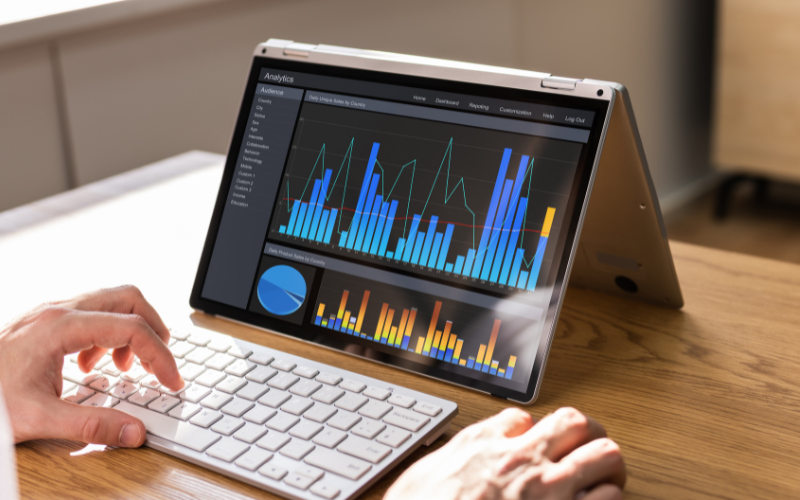The Impact of Digital Health Solutions on Diabetes Outcomes

Over the past 40 years, there has been an alarming four-fold increase in the number of individuals diagnosed with diabetes. This surge in cases has placed a significant burden on people worldwide, particularly those in low and middle-income countries.
To combat the escalating worldwide health crisis of diabetes, it is crucial to venture into uncharted territory and discover groundbreaking approaches. This is where the transformative power of digital health technologies comes into play, presenting ingenious remedies to confront this pressing problem.
According to the IDF Diabetes Atlas, approximately 10.5% of adults (ages 20 to 79) have diabetes, and shockingly, almost half of them are unaware of their condition.
By utilizing digital health technologies, individuals can gain access to the necessary tools and resources to effectively manage their diabetes. These technologies not only provide valuable insights and support, but they also play a crucial role in raising awareness and helping those who are unaware of their condition to seek proper diagnosis and treatment.
Overall, digital health technologies have the potential to revolutionize the way we approach diabetes care, empowering individuals to take control of their health and improve their overall well-being.
Over the years, the field of diabetes management has experienced remarkable advancements in tools and technologies. Individuals have surpassed conventional devices like the CGM and enthusiastically embraced a wide array of innovative solutions, including insulin smartpens, mobile apps, wearables, and AI-powered algorithms. These state-of-the-art tools have completely transformed the approach to diabetes, offering individuals a multitude of options and empowering them to take charge of their own health.
Innovation has made life with diabetes a lot more manageable, and the tools more practical. These tools open up new pathways for diabetes care and management. They are accessible and convenient products that can improve access to specialized care.
Now, let's explore the various ways in which digital health solutions can enhance the outcomes of diabetes management.
Drive Positive Lifestyle Modifications
Digital health solutions, such as mobile applications and wearable devices, incorporate gamification aspects into the management of diabetes.
Here is how it works:
Apps like Fooducate offer a unique grading system that evaluates the nutritional value of the food you consume. Additionally, these apps provide valuable insights into calorie intake and offer detailed charts and analyses of the composition of different food items. By using these apps, individuals can easily determine which foods are beneficial for managing their diabetes and which ones may have a negative impact. The personalized diet plans provided by these apps make them suitable for everyone looking to improve their dietary habits.
These elements of gamification can empower patients to establish targets, unlock rewards, and embrace challenges, thus igniting a surge of motivation and facilitating the seamless incorporation of healthier eating habits.
According to a recent study, new health mobile technologies have the potential to help with diabetes care. Mobile apps play a significant role in managing different aspects of healthcare. Such as promoting health and preventing diseases, diagnosing conditions, providing treatment, monitoring progress, and supporting healthcare experts.
Researchers evaluated 25 articles and found that mobile apps have the potential to improve diabetes care. About 88% of the studies reported a positive outcome in the use of diabetes treatment.
Patients were able to manage their condition more effectively and educate themselves on how to keep their disease stable. Patients were also able to better track and process their actions, behaviors, and habits over time.
The apps can collect data, such as information from daily routines and activities. This monitoring can help people gain insight into their patterns, behaviors, and trends.
Facilitate Seamless Communication
Digitalization facilitates effortless sharing of data between patients and healthcare professionals, enabling precise adjustments to insulin doses and other medications for diabetes management.
With the data stored in apps or wearables, doctors can step into the world of their patients. They can gain a deep understanding of what patients are experiencing and tailor their approach to meet their unique needs.
To top it all off, there are a bunch of apps and tools available for purchase. So, it’s easy to find a digital tool you are comfortable with.
For example, if you are using a CGM with Wi-Fi, then this device can automatically transmit data to a healthcare expert. Healthcare professionals can see blood sugar and activity levels.
If you opt for telemedicine, having tools like these becomes essential. They allow you to grant your doctor access to your health information, enabling fruitful discussions regarding the most effective diet tips and medications tailored specifically to your needs.
Diverse Range of Functions
The versatility of digital health solutions for diabetes is truly remarkable.
These digital health solutions go beyond simply monitoring blood sugar levels. They offer a comprehensive way to track diet and nutrition, ensuring that any changes I make are tailored to my individual needs.
For example, some online platforms and mobile apps can be used for food and nutrition tracking. You can use them to log your meals, record portion sizes, monitor your carb intake, etc. But, I can also use them to get some diabetes recipes. Some apps can also come in handy when you need specific dietary needs. Like low-sugar or low-carb diets.
Furthermore, advancements in AI-powered devices have revolutionized the field of diabetes care. According to recent reports from 2022, cutting-edge tools such as wearable CGM and AI-powered apps have the remarkable capability to transform the management of diabetes. These sophisticated tools are not only capable of handling vast amounts of data, but they also possess the potential to completely overhaul the way diabetes is approached and treated.
- Increase lifespan
- Give a sense of peace
- Improve the self-administered insulin delivery system
- Provide quick access to professional counseling
Provide Valuable Insight
Living with diabetes can be a rollercoaster ride, with blood sugar levels fluctuating throughout the day. It can be challenging to keep my health in check amidst the unpredictability. However, with the help of innovative diabetes tools, I can gain insight into what to anticipate and better manage my condition.
For instance, these tools allow you to monitor the latest trends in time-in-range and utilize the data to identify personalized treatment opportunities. As you track your progress, you can identify areas where adjustments are needed and leverage this information to enhance your self-care routine for managing diabetes.
If you ever find yourself uncertain about anything, don't hesitate to share your data with your healthcare team. Together, you can identify the areas that require your attention and focus.
According to recent research, diabetes is a significant contributor to heart problems, which can ultimately impact a person's lifespan. However, the innovative tools mentioned earlier in this blog post are specifically designed to enhance diabetes management and reduce the risk factors associated with cardiovascular complications. By leveraging these tools, individuals can significantly decrease their chances of developing heart-related issues and enjoy a healthier and longer life.
Conclusion
The advent of digital health has the potential to revolutionize diabetes care, leaving a lasting impact that resonates with people worldwide. With the increasing prevalence of wearable technologies, mobile apps, and telemedicine, individuals now have easier access to healthcare professionals, allowing them to focus on maintaining stable blood sugar levels and effectively managing their diabetes.



